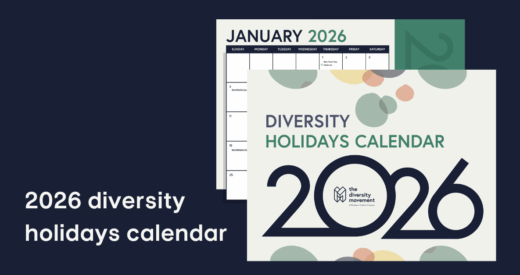Eid al-Adha (Festival of Sacrifice) is the Muslim calendar’s second most significant festival, after Eid al-Fitr. Muslims celebrate Eid al-Adha on the 10th day of the 12th month (Du il Hijjah) of the Muslim calendar. The date for Eid al-Adha changes every year as it is set by the lunar calendar. The reason for the celebration of this Eid (pronounced eed as in ‘feed’) is entirely different from that of Eid al-Fitr.
Muslims celebrate Eid al-Adha to remember the sacrifice of Prophet Ibrahim (Abraham) and his son Ismail (Isaac). There is a story behind the celebration of this festival.
Story of Eid al-Adha
Prophet Ibrahim had a dream about sacrificing his son Ismail to prove his obedience to Allah (SWT). Prophets’ visions and dreams are true and are considered to be a direct message from Allah (SWT), so Prophet Ibrahim decided he must sacrifice his son, Ismail.
He explained his dream to Ismail, and Ismail (his son) told him to obey Allah’s command. Satan (the Devil) tried to tempt Prophet Ibrahim to spare his son and disobey Allah (SWT), but Prophet Ibrahim was steadfast in his decision.
Then, at the moment when Prophet Ibrahim was about to sacrifice Ismail, Allah (SWT) sent the angel Jibrail (Gabriel), who (by Allah’s command) replaced Ismail with a lamb. Allah (SWT) accepted the sacrifice and made Eid al-Adha a celebration to remember Prophet Ibrahim’s sacrifice and righteousness.
In the Holy Quran, Allah (SWT) says:
Thereafter, when he (Ismail) reached an age in which he could work with him, he (Ibrāhīm) said, “O my little son, I have seen in a dream that I am slaughtering you, so consider, what is your opinion?” He said, “O my dear father, do what you have been ordered to do. You will find me, inshā’allah, (if Allah wills) one of those who endure patiently.” (chapter 37, verse 102)
And
We called out to him, “O Ibrāhīm, you did make the dream come true.” This is how We reward those who are good in their deeds. (chapter 37, verses 103, 104)
How is Eid al-Adha celebrated?
Eid al-Adha is celebrated in most countries by sacrificing sheep, goats, cows, or camels. In other countries, the animals are killed at a slaughtered house. Before performing the sacrifice, people go to the mosques to perform Eid Prayer.
Once the animal slaughter is done, the meat is equally divided into three parts:
- One part for family members
- One part for relatives and friends
- One part for needy and poor
It is neither their flesh nor their blood that reaches Allah, but what does reach Him is the taqwā (the sense of obedience) on your part. Thus He has made them (the animals) subjugated to you so that you proclaim Allah’s glory for the guidance He gave you. (Holy Quran, chapter 22, verse 37)
Hajj
Hajj is the pilgrimage to Makkah, Saudi Arabia, where Muslims gather every year to worship Allah (SWT). Hajj is the 5th pillar of Islam, and Muslims celebrate Eid al-Adha on the last day of Hajj.
Hajj is obligatory for every Muslim who is fit and has the means to perform it. During the Hajj, Muslims walk around Kabah seven times and later complete the sacrifice on Eid al-Adha.
How can employers acknowledge and respect Eid al-Adha?
Eid al-Adha holds sentimental and spiritual value for Muslims around the world. Employers’ disregard of Muslim holidays can lead to a lowered sense of belonging in Muslim employees. To create a more equitable workplace and support the needs of marginalized communities, employers should take the following actions:
- Engage in unconscious bias training to mitigate uninformed or misinformed conceptions about Islam. As Glen Block, Senior Director of DocuSign, shares in an article for Forbes, “a key component of our faith, which is emphasized in the Qur’an, is about the importance of taking care of those in need. I believe this beautiful side of Islam is often lost due to the political climate and the areas of focus of the media.”
- Implement inclusive scheduling and provide a private space for prayer. Observant Muslims pray five times a day for a short period. Providing time and a private space for prayer is an excellent way to help Muslim employees feel included and respected as part of the team. Similarly, employers can enable their Muslim employees to celebrate festivals by offering paid time off for personal and religious holidays, like Eid al-Fitr and Eid al-Adha.
Respectfully acknowledging Eid al-Adha is just one part of creating a more inclusive workplace culture where people can bring their full selves to work.
1 Allah means God in Arabic
2 SWT is the abbreviation for Subhana Wa Ta’ala which means The Most Glorified
Samy is a writer with over ten years of experience in ghostwriting, business writing, blogging, and content creation. She is the founder of Speak Out Organization, a human rights activist, a High Court lawyer, and a mom.






